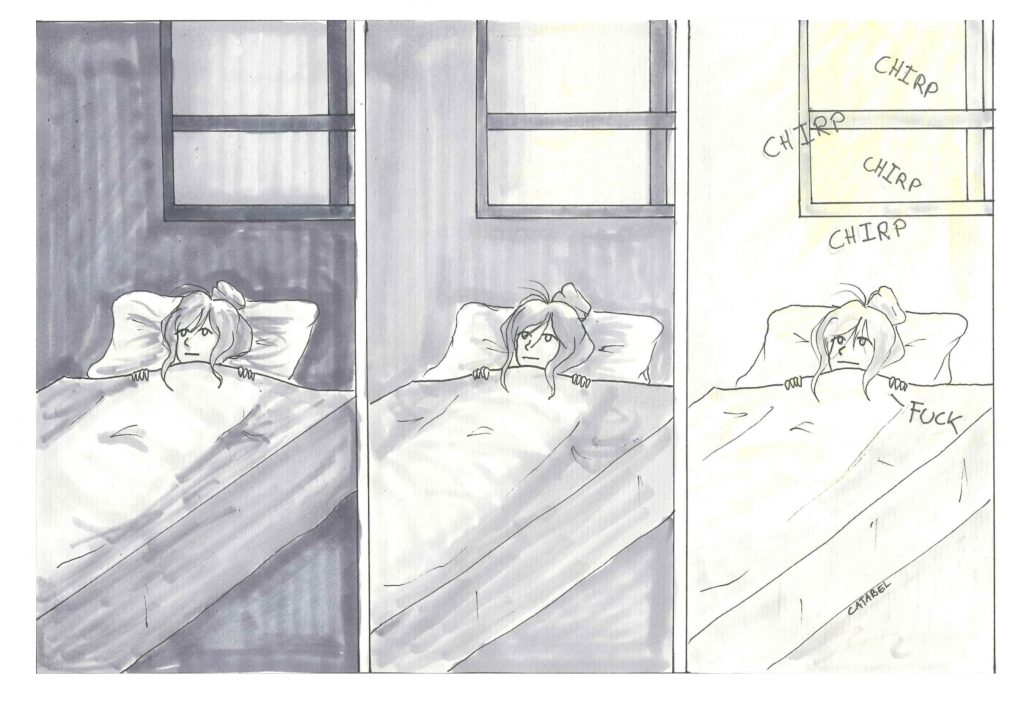All the different parts of our body are interconnected and interrelated in some way. The backbone is connected to the hip bone. Our eyes are connected to our brain which controls all the muscles in our body.
This is true with sleep also as there are a number of factors that can influence your sleep, apart from just what happens at night-time or just before you go to bed.
How your day starts can affect your sleep after fifteen hours. The daytime is connected to your night-time. In simple words, we can say that what you do within the day can have an impact on your sleep at night.
Manage Your Day

Organizing your day time agenda will certainly enhance your chance of getting a night of high-quality sleep. If your day’s routine is disorganized or hectic, your night-times will be hard too. If you are unhappy and worried during the day, you will not be able to relax your mind during the night.
Your sleep problems may be the reason for your negative habits or problematic behaviors during the day. Without realizing it, people with sleep problems do things and activities within the day that contribute to their problems with sleep.
Manage your Time
A disorganized life without any routine is unlikely to help you with sleep. You should properly organize your evenings and incorporate effective strategies to ensure a relaxing night.
You need to make a plan for organizing your day time, although for some people it may be difficult still you can follow some simple guidelines to gain control over your time.
You can follow some simple steps to achieve good time management
Make a list of all the tasks that you need to complete during the day.
This list could be for the present day or for the next day, next week, for next month or even for a year. It depends on whether you have problems organizing your daily tasks, or whether it relates to organizing tasks for a longer period of time.
Prioritize your work.
Prioritizing your work is extremely important because many people waste their time on activities that are not essential or necessary. If you think there are some activities on your list that are not needed indeed, you may cancel them.
Share your work if you have a lot of things to do.
Certain tasks can be shared and someone else can help you with some of the tasks. If you have some tasks that can be shared with someone or you can delegate to others, do it. You have only a limited time during the day and there is a limit to what you can do unless you are a superman.
Make a timetable.
Now you are left with only important and essential tasks, you can write the time by which each of these tasks should be completed on a blank paper. Knowing when these tasks need to be completed will help you in completing the tasks in time.
When your plan should start.
Now you have a list of important tasks and you have allotted required time for each task within which that task should be completed. Determine when you need to start working on that particular job.
Plan Your Day Time
You are now ready to put together a plan after having worked out what activities you need to perform during the day and the time required to complete each of them. Planning and organizing your day increases the possibility of achieving your goals.
It is important to include necessary breaks and buffer zones between your tasks for other things such as having lunch or an unexpected incident or interruption. These breaks or buffer zones will give you extra time in case an activity takes longer than expected time.
Finally, at the end of the day, you must have some sort of buffer zone between your daily routine or daily chores, and the state of relaxation and calmness associated with good sleep quality. This activity is a wind-down activity before going to bed.